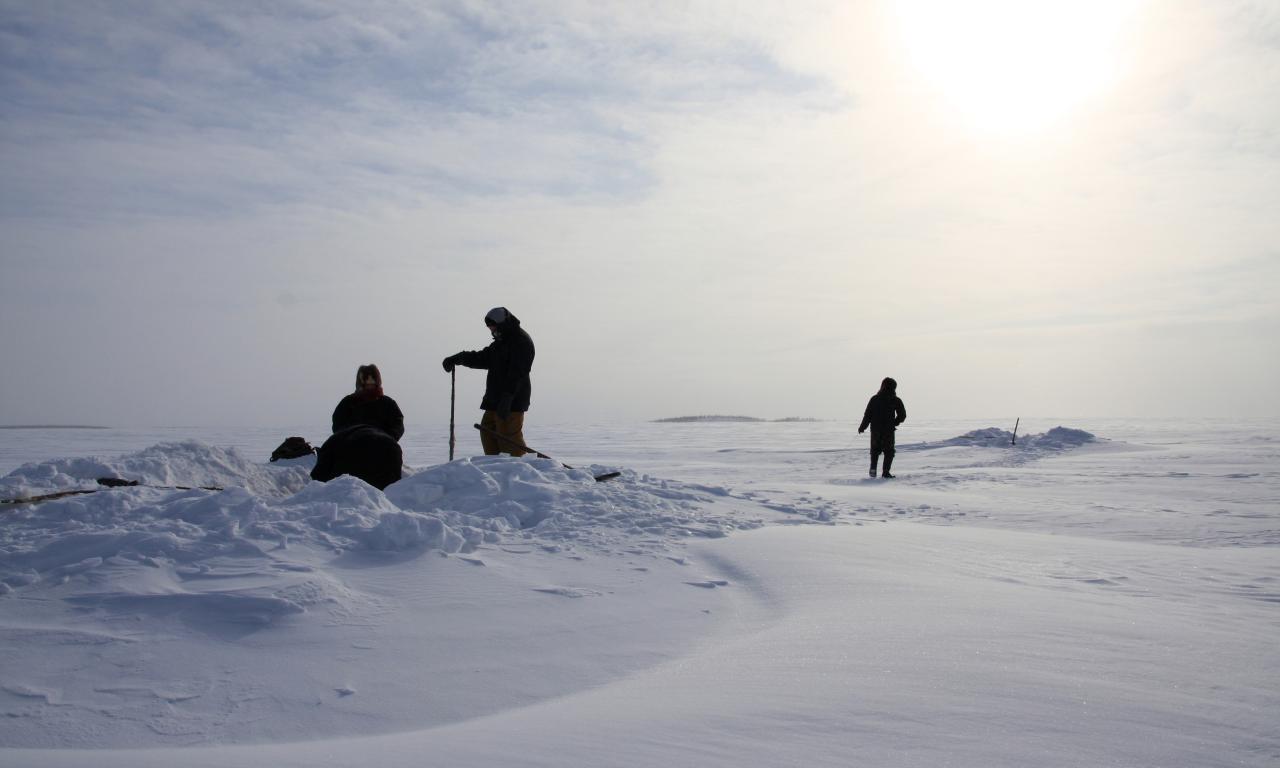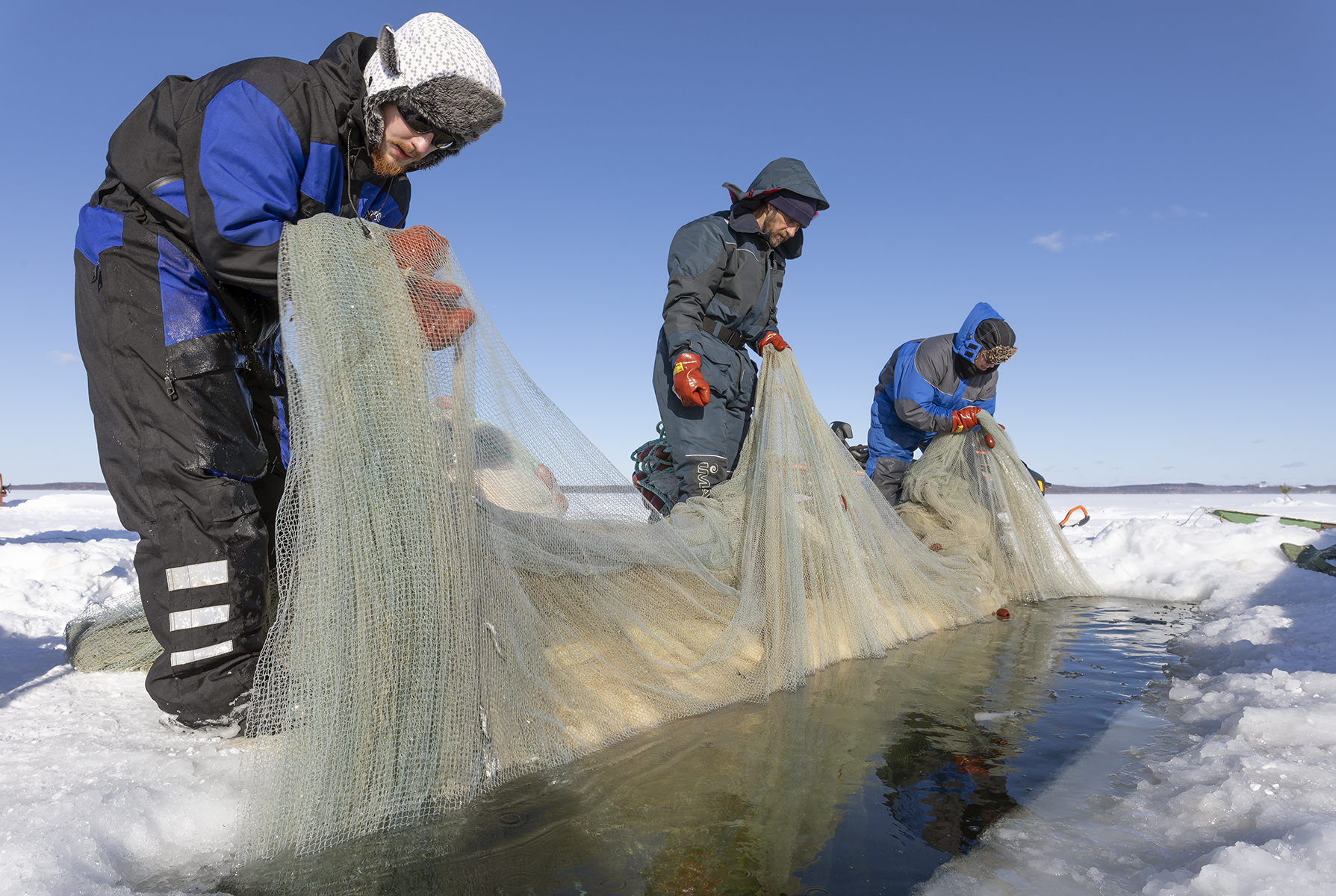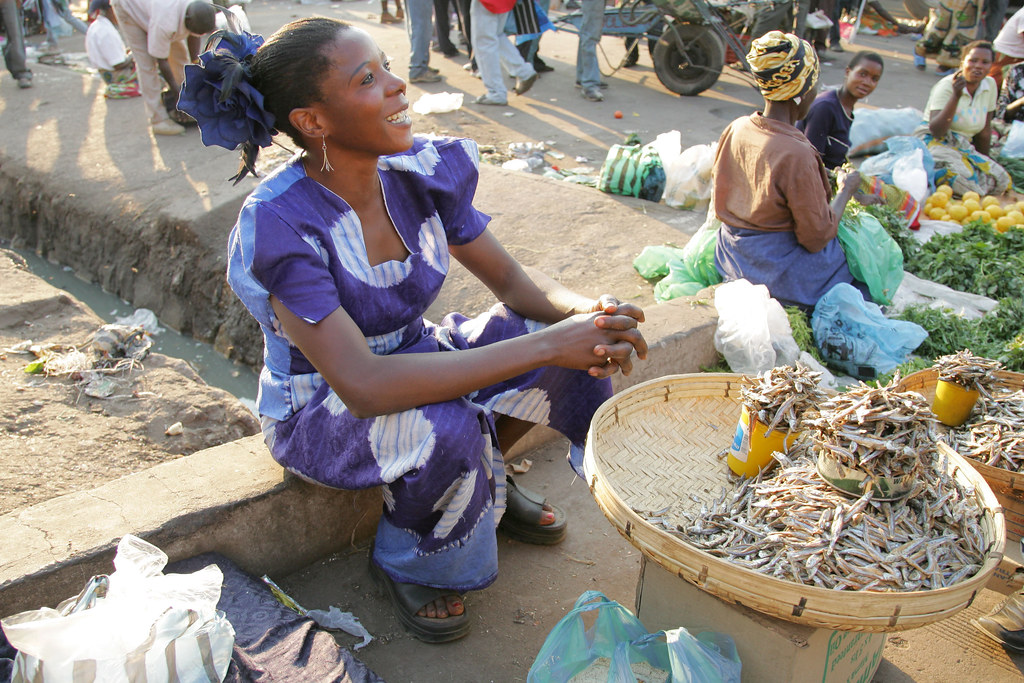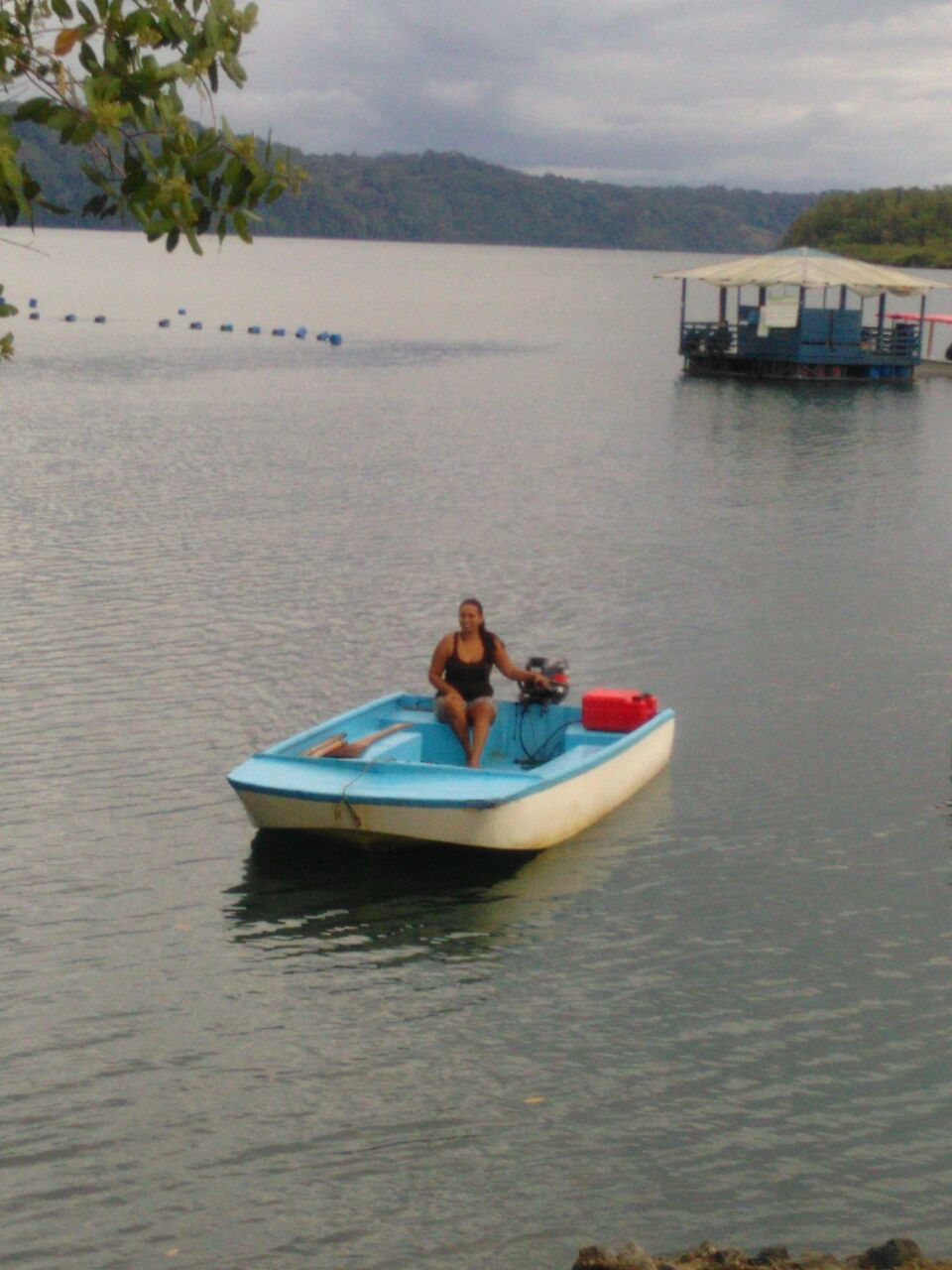
Speakers and panelists at two webinars on ethical and inclusive communication on small-scale fisheries discussed ways to lift up positive and accurate narratives to support thriving fisheries for food and nutrition security
For thousands of years, Arctic communities like the Inuits and Chukchi have hunted seals and whales—a food source and vital part of their culture and society.
They are the first and foremost caretakers of good and ethical relations with these animals.
“These communities have an incredibly long engagement with the ocean, and sometimes 10,000 years of uninterrupted knowledge,” said Tero Munsten, President, SnowChange Cooperative, who is also an ice fisher in Finland.
“The Arctic regions are some of the last places on the planet where you can still find such systems in operation.”

Lifting up this and other narratives that illustrate the realities of small-scale fisheries (SSF) in an accurate and respectful way was the focus of two webinars held in May and June 2021.
WorldFish and civil society partners organized the webinars as part of the development of a how-to guide on ethical and inclusive communication on SSF, due out later in 2021.
Bringing together speakers from civil society, social movements, research institutes and non-governmental organizations, the webinars were a timely conversation in the lead up to the International Year of Artisanal Fisheries and Aquaculture (IYAFA) 2022.
The webinars highlighted key principles and themes in the Voluntary Guidelines for Securing Sustainable Small-Scale Fisheries in the Context of Food Security and Poverty Eradication (SSF Guidelines), which recognize “small-scale fishing communities as holders, providers and receivers of knowledge" and emphasize the need and power of transparent and fair communication.
New positive narratives
The first webinar, New positive narratives on small-scale fisheries, was held on World Ocean Day on 8 June 2021 as part of the Too Big To Ignore SSF Open House event, involving 40 webinars on different topics.
Several speakers highlighted that many narratives associated with fisheries are accepted as the status-quo, regardless of if they are correct or accurate. These include, for instance, ‘fishers are emptying the oceans’, ‘we must stop eating fish to save the ocean’, and ‘aquaculture is the answer.’
“Many of the existing narratives have not worked perfectly and, in many domains, they have not worked at all [as a way to improve fisheries governance or livelihoods],” said Prateep Nayak, Project Director, Vulnerability to Viability Global Partnership.
“New SSF narratives are needed to replace or substantiate the existing narratives so we can tell the SSF story (of culture, food provision and environmental stewardship) in a stronger, powerful and more accurate way.”
Nayak said new narratives are also required to address the drastic and rapid changes happening in ocean spaces, food systems, agricultural landscapes—all of which can impact upon millions of SSF globally and the values they bring to society and food systems.
At the same time, many groups and powerful interests are increasingly invoking narratives or images of small-scale fisheries to draw attention to global solutions or challenges, but do so without legitimate representation of small-scale fishers themselves.
Responsibility for controlling the narratives lies with the small-scale fisherfolk, said Nadine Nembhard, General Secretary, World Forum for Fisher Peoples.
“Fisherfolk know the positive narratives that need to be sent to the global world, but nobody can do that except us. Some of our fisherfolk messages have been ignored and others have been co-opted, so we are the ones that need to take charge and continue building up narratives that reflect reality,” she said.

Fishing communities living through social, cultural and economic crises and challenges have “valuable insights for society,” said panelist Libby Drew, Founder, On Our Radar, a social impact communication agency.
“Lived experience is an essential component to balance out our society’s learned experience. Communities have a right to speak and don’t need others to speak on their behalf,” said Drew.
Panelist Eastina Taylor, Community Engagement Lead, On Our Radar, shared the example of how On Our Radar works with communities in Sierra Leone to amplify their voices and concerns about a government decision to sell 250 acres of land to a foreign-owned company to produce fishmeal for export.
“It is essential to engage with fishing communities, to listen to their needs, stories and community-led solutions instead of importing solutions,” said Taylor. “Working with communities to address challenges creates more opportunities.”
Ethical and inclusive communication
The second webinar, Ethical and inclusive communication on small-scale fisheries, was hosted by the Society for Conservation Biology Marine Section on 19 May 2021 in the lead-up to the International Day of Biological Diversity.
Speaker Editrudith Lukanga, Co-President, World Forum of Fish Harvesters and Fish Workers, emphasized that communication about SSF should align with the principles of the SSF Guidelines.
Such principles include consultation and participation, transparency, respect of cultures, equity and equality, and gender equality and equity.
“When holding consultations, for example, it is important to consider the power balances and imbalances and manage these to be as inclusive as possible,” said Lukanga, also the Secretary General of the African Women Fish Processors and Traders Network.
Governments and NGOs need to work towards providing the right of meaningful participation to communities and fishers, added Vivienne Solis Rivera, Founder, CoopeSolidar R.L. Costa Rica.
“I think the discourse or the narrative should be that we (governments, research organisations and NGOs) are the ones who need to change and provide the conditions for fishing communities to participate,” she said.
Small-scale fisher Nirleidy Artavia, from the Marine Responsible Fishing Area of Golfo Dulce in Costa Rica, emphasized that it is “important to exchange and share knowledge,” including traditional ecological knowledge and local knowledge.
“But we must be careful about how we do this,” she said. “My reality is made up of what I live; it’s not applicable to other communities. The autonomy of different communities should be kept and saved.”

A human rights approach, which the SSF Guidelines are based on, should be the foundation of any collaboration with SSF communities, said panelist Ana Carolina Marciano, Programme Officer, SwedBio.
“Open communication that builds on trust and rights has a much greater chance to lead the needed—or positive—transformational change,” said Marciano, bringing a funder’s perspective to the discussion.
Panelist Marthin Hadiwinata, National Coordinator, Ekologi Maritim Indonesia, reinforced that people in SSF must be seen first and foremost as humans.
“Fisherfolk have interests, knowledge, and their human rights embedded in their livelihoods and fishing activity.”
Solis Rivera emphasized it is important to “respect cultural understandings first” when addressing “hard issues,” like communicating about animal welfare without alienating communities that depend on SSF.
“There needs to be intercultural dialogue. One shouldn’t jump into particular discourses to change the mind and culture of people without first touching their hearts,” she said.
‘Small-scale fisheries are the solution’
Speakers and panelists from both webinars raised a range of important recommendations for anyone communicating with or about SSF, or about topics such as ocean and water governance, climate change adaptation and food systems transformation where SSF livelihoods are implicated.
Small-scale fisheries make important contributions, providing food, livelihoods and incomes to millions of people globally, along with a sense of belonging, cultural value, social cohesion and spiritual values.
“We need to go deeper in observing and listening to SSF communities,” said Solis Rivera, acknowledging the need to respect, value and learn from traditional SSF knowledge.
“There needs to be a clear position against arrogance—this is a strong value we have to carry for a positive narrative.”

Mohammad Arju, Director, Sagar Seba, called on journalists, scientists and development practitioners to do the “real work” of engaging with and observing local communities in action to “overcome colonial narratives.”
“Get the real picture from the ground,” he said, referring to the narrative around marine conservation and SSF, which is often “exaggerated” and results in “fishers being vilified.”
“Do the hard work and reach out to fishers. In South Asia, for instance, it’s easy to access small-scale fishers and their processing centers—you can see their activities with your eyes.”
Libby Drew echoed the call to engage in “deep and meaningful ways” with SSF communities.
“Journalists and researchers need to switch to being bridge builders, connectors and networkers that use their connections to amplify fisherfolks’ voices, ensuring they get heard and seen by the audiences that matter. And impacts need to be fed back to communities so they can stay in control of the narratives,” said Drew.
Critically, more strength and power must be given to SSF to control true and accurate narratives about their lives and livelihoods, said presenter Dyhia Belhabib, Principal Investigator, Ecotrust Canada.
“Science should be less focused on doom and gloom titles and less glamour driven, and researchers should instead concentrate on learning from SSF communities and give space for solutions other than the mainstream ones,” said Belhabib.
“There is a need to stop importing solutions from dissimilar contexts and start listening to existing solutions, particularly the successes and wins of SSF that have existed for millennia.”
Watch out for the forthcoming how-to guide on ethical and inclusive communication on small-scale fisheries, due out later in 2021. The guide, facilitated by WorldFish and developed collaboratively with SSF representatives, will provide practical and simple communication advice for anyone working in, around or with SSF. Recommendations and discussion points from the webinars will be incorporated into the guide, which will also feature key messages, positive narratives and good communication practices.
Related publications: